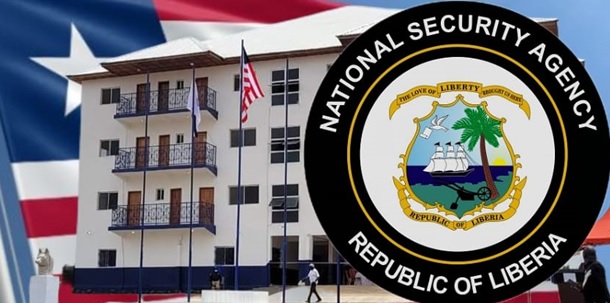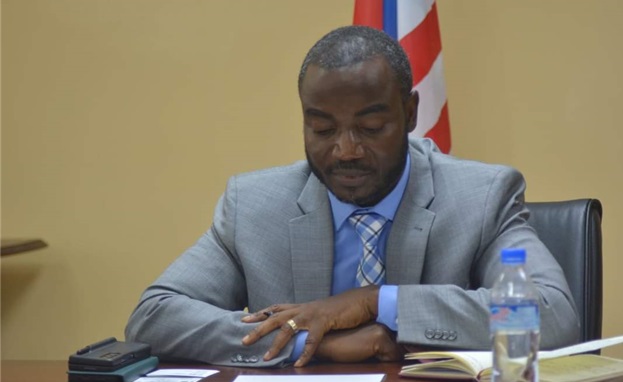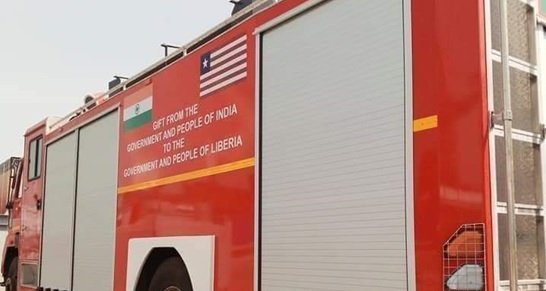MONROVIA, LIBERIA – Successive presidents have reportedly used the National Security Agency (NSA) as a tube for institutionalized thievery, with the agency allegedly consuming $151.94 million between 2010 and 2024. Martin Kollie, a vocal critic of bad governance and a civil society activist, detailed these allegations in a write-up on Thursday, June 27, 2024.
In his exposé titled, “How The National Security Agency (NSA) Has Been Used By Successive Presidents As A Conduit Of State Plunder And Institutionalized Thievery – Why Did President Joseph Boakai Withdraw His Decision To Audit The NSA?” Kollie sourced and analyzed data from approved budgets covering 15 fiscal years, revealing significant discrepancies between projected and actual expenditures.
Summary of Key Findings:
- A total of $151,938,584.00 has been spent on the NSA between 2010 and 2024.
- The NSA has spent an average of $10.13 million every 12 months since FY2010.
- Under ex-President Ellen Johnson Sirleaf, the NSA consumed $61.12 million over eight years (FY2010/2011 to FY2017/2018), amounting to 40% of the total expenditure.
- Under ex-President George Weah, the NSA consumed $79.83 million over six years (FY2018/2019 to FY2023), accounting for 52.5% of the total expenditure.
President Joseph Boakai, who took office in January 2024, initially promised to audit the NSA but later withdrew his decision, citing the “sensitivity of operations” as the reason. Despite this, his administration has budgeted $10.98 million for the NSA in FY2024, surpassing the entire agriculture sector budget of $8.8 million, which accounts for just 1.19% of the total fiscal envelope for FY2024. This allocation violates the 2003 Maputo Declaration, which mandates that African governments allocate at least 10% of their national budgets to agriculture.
Kollie criticized President Boakai for following the same playbook as his predecessors by funneling significant funds through the NSA. The highest annual expenditure on the NSA since 2010 was $28.38 million in FY2023 under George Weah, while the lowest was $1.75 million in FY2010/2011 under Ellen Johnson Sirleaf.
Kollie also questioned President Boakai’s justification for rescinding the NSA audit, arguing that the law requires the agency’s financial books to be audited annually. Section 2.56 of Subchapter D of Chapter 1 of the 1974 Executive Law disqualifies the President’s reason for withdrawing the audit. He pointed out that even intelligence agencies like the NSA and CIA in the United States are subject to audits.
The analysis revealed that despite Liberia’s low terrorist threat level, with a 0.00 score on the Global Terrorism Index (GTI), the NSA continues to receive disproportionate funding compared to other critical sectors like agriculture. Kollie questioned the government’s national priorities amid scarce resources, emphasizing the need for a forensic audit of the NSA to ensure accountability and transparency.
Breakdown of NSA Expenditures (FY2010-2024):
- FY2010/2011 – $1,758,956
- FY2011/2012 – $3,328,771
- FY2012/2013 – $5,178,950
- FY2013/2014 – $8,729,374
- FY2014/2015 – $10,487,127
- FY2015/2016 – $12,195,766
- FY2016/2017 – $11,473,734
- FY2017/2018 – $7,963,022
- FY2018/2019 – $7,962,979
- FY2019/2020 – $8,963,265
- FY2020/2021 – $12,911,504
- Special Budget FY2021 – $10,534,405
- FY2022 – $11,076,724
- FY2023 – $28,384,891
- FY2024 – $10,989,116
- Total FY2010-2024 – $151,938,584
However, Kollie emphasized in his recommendation, “We, the people, are calling on President Boakai to recommission the audit of the NSA. It cannot be business as usual. We promised our people to do it differently, and this time, after 177 years on a journey to nowhere, it must be different.”
“Our people deserve a breakaway from poverty. They deserve better; a life of dignity and self-worth. It’s time to put up a strong fight for them. As an activist, we have a duty to protect public interests and safeguard the future of generations yet unborn. We will release a lot in the coming days,” Kollie concluded.
The call for a forensic audit of the NSA has gained traction among civil society and the public, who are eager to see genuine efforts to combat corruption and ensure the responsible use of public funds.
Moreover, the recurring misallocation of substantial funds to the NSA, despite the negligible terrorist threat in Liberia, underlines a systemic issue within the government’s budgeting priorities. Many citizens and activists believe that redirecting these funds to critical sectors such as agriculture could significantly enhance national development and reduce poverty.
President Boakai’s administration is now at a critical juncture. To restore public trust and demonstrate a genuine commitment to fighting corruption, it must take concrete steps towards transparency and accountability. Reinstating the audit of the NSA would be a significant first step in this direction.







